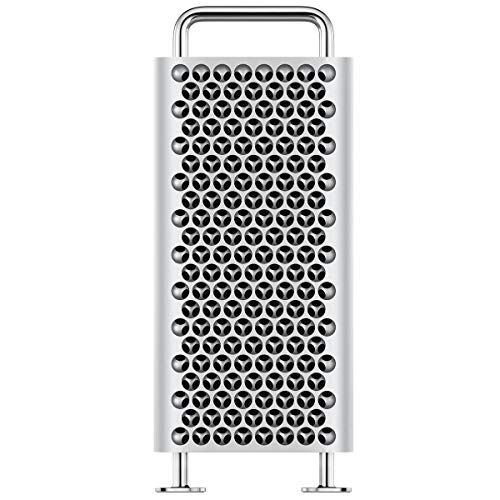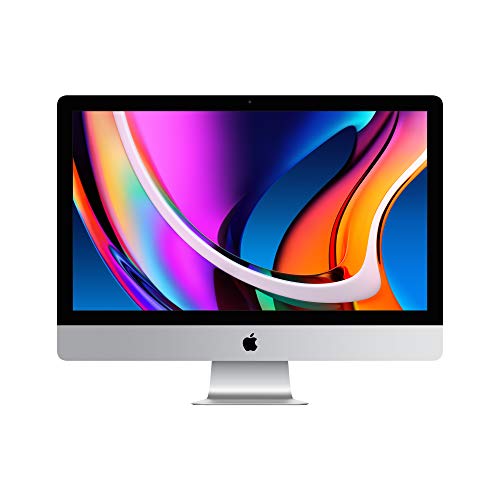These days, you don’t have to go to a studio to record, mix, and create music. Music production has gone completely digital, adding a new convenience for those who would like to dabble in making music.
Truthfully, the only essential thing that you really need is a computer. The first question that should pop into your mind is: which laptop or desktop should I get for music production?
Choosing the Right Laptop or Desktop for Music Production
If you know even just a little bit about computer specs, you’d realize that it’s not the simplest question to answer. There are a ton of things to consider like:
- How much are you willing to spend on your setup?
- How fast should your new computer’s processing speed be?
- Do you want to build permanent setup or a portable one?
Your setup should, of course, be tailored to your preferences. That’s why it’s important to check out all your options. First thing’s first, let’s discuss desktops vs. laptops.
Desktops vs. Laptops
One of the most obvious things about newer technology is its focus on portability. Most people’s on-the-go lifestyles just call for it. Laptops are barely a compromise anymore when it comes to speed and connectivity.
However, upsides still remain for a good old desktop setup. Here’s why:
They’re much more customizable.
- Should you ever want to add more RAM, hard drives, and video cards, it’ll be a definite possibility.
They win the connectivity battle.
- More routings will let you build a beefier and more sophisticated setup, with more room for actual instruments, synthesizers, and mixers.
They can provide you with maximum processing power.
- DAWs (digital audio workstations) and plugins take up a lot of processing power. Without the right specs, you can expect laggy creation and rendering.
You can minimize noise.
- By having the option to keep your CPU far away from monitors and microphones, you don’t have to worry about picking up its noises during recording sessions.
These are all attractive qualities of a desktop setup, but there is one drawback: you can’t take it around with you.
That could pose a problem if you want to DJ in venues and play in mobile studios. There’s also the issue of added cost. You probably need a laptop for work or school anyway, so getting one would kill two birds with one stone.
At this point, do you know whether a laptop or desktop would be more suited to you? Good. Next up on the agenda is…
Mac vs. PC
Oh boy. This has sparked many highly heated debates among desktop enthusiasts for decades. I try not to give my opinion on this subject just to avoid arguments.
But since we’re here to decide, I would have to say that Macs are my personal choice. Many would disagree with me and here’s why:
Cost
- Macs are notoriously expensive and not everyone has that kind of money to blow on a computer.
Customizability
- Desktop builders would generally go for a PC because they’re much easier to buff up and modify.
A matter of operating system preference
- The mac operating system is very clean while the PC operating system (windows for example) is a very familiar one.
That being said, Macs also brings other things to the table like stability, solid performance, high-end build quality, and a sleek look that’s easily recognizable.
Whichever one you go for, just remember that great music can be produced on both.
Mac Desktops
If you’re sold on the idea of getting a Mac, here are your best options: 
Now, how do these four measure up to each other?
The Mac Pro is aptly named because it’s probably what you would find at a professional recording studio. It’s a strong contender against a PC because it’s just as easily upgradable. For a while there, its specs were unparalleled, almost overkill.
Then Apple unleashed the iMac Pro, which is their most powerful offering. It has a built-in monitor with specs that could handle pretty much anything you throw at it. Naturally, it has a heart-sinking price tag to match.
If you can afford the iMac Pro, get it. You’re not going to need another computer for at least the next ten years, which makes it an excellent investment.
If it’s not in your budget, you can always get the regular iMac, which, of course, isn’t as powerful, but it’ll it do for a beginner setup.
The newer models of the Mac Mini can be boosted to outperform the regular iMac, so don’t take that option off the table. It may not have all the bells and whistles that come with Apple’s more expensive models, but you won’t be blowing a hole through your pockets.
Related: Audio Interfaces: The Definitive Guide (2023)
PC Desktops
If you’re the kind of person who likes to take the DIY approach, then a custom PC should be right up your alley. It’s very possible to buy the parts and assemble a setup that can outrank a Mac Pro. If you have the skills to do that, by all means, go for it.
If you don’t know the first thing about building a computer, then PCs might not be your best bet. Why? The main benefit of a desktop setup is having more processing power. If your main gripe about Macs is Apple’s steep asking price, it wouldn’t make much sense to blow your budget on a subpar preassembled PC.
If you’re on a limited budget, you might as well spend it on a laptop and get the bonus of portability while you’re it.
Now that we’re on the subject of laptops, let’s delve into…
The 4 Essential Laptop Specs
After all this talk of desktop setups, we’ve established that laptops are not the most ideal choice for music production. That’s not to say that you shouldn’t get one because they do have their advantages.
If you have your heart set on a more portable setup, here are the laptop specs you should look into:
Screen size
- Music producers spend a hell of a lot of time immersed in their DAW of choice. To minimize the eye strain, you may want to go for a bigger screen size.
Mechanical noise
- If you intend to use your laptop purely for mixing and not recording, this obviously won’t be an issue. However, if you’re planning to set up a bedroom studio, you wouldn’t want your laptop fan noise make their way into your recordings. Make sure to read a lot of user reviews before buying a laptop to avoid this. Better yet, get a laptop with a solid state drive (SSD).
Ports
- It’s an ongoing trend with laptops to lessen the number of ports to make them look sleeker. Keep in mind that improving your setup means hooking up more things to your computer. Make sure you have enough ports to accommodate that.
Backlit keys
- If you’re going to playing in low-light settings like clubs and bars, it’ll be a massive help if you can still see your keyboard.
Now, let’s get on with the laptops…
Mac Laptops
If you want to go with an Apple product, these are your options:
Why get the Macbook Pro? I’ve got 3 simple answers for you:
- It has impressive processing power for a laptop.
- It’s has high powered ports.
- It has a beautiful display.
Given that the Macbook Pro is the best Apple laptop for home recording, it’s also the most expensive. If you can’t afford it, you can always get the Macbook or Macbook Air. I can’t say that they’re ultra-fast, but they are very sleek and lightweight.
PC Laptops
You have so many options for PC Laptops, and for that reason, it can be a pain to settle on one. Some people might appreciate the generous selection, but usually, it just induces a lot of anxiety.
I must say, though, that PC laptops generally tend to be the best for music production. Here’s a couple of great contenders:
If you’re still unsure about which one to get, a valuable tip is to look into gaming laptops. Some companies have released high-end builds that are meant to run games at high settings. Because of these specs, a DAW should be a cakewalk for these setups.
DAW Compatibility
DAWs come with their own system requirements in order to run properly. In most cases, you shouldn’t have a problem running a DAW on a more current computer. But sometimes, you might come across some complications, so it’s prudent to check whether the DAW you’re interested in can be used on your laptop or desktop of choice.
If you have no idea which DAW to use, it’s going to take a bit of research to find one that you’d be most comfortable to use. Here are the most popular DAWs and the links to their system requirements:
- Avid Pro Tools
- Presonus Studio One
- Apple Logic Pro X
- FL Studio
- Steinberg Cubase
- Propellerhead Reason
- MOTU Digital Performer
- Ableton Live
Now that we’re in the topic of software, I’ll help you understand the specs that you should look into to make sure that your computer can handle your chosen DAW.
Vital Components
There are three vital components that make a topnotch music computer. These are:
CPU speed
- The CPU, which stands for central processing unit, is measured by the number of its cores. More cores mean more multi-threading support. Most DAWs need multi-threading to run smoothly. You always want to get a computer with a CPU with the highest clock speed that your budget can accommodate.
Memory (RAM)
- Because of advances in technology, RAM is becoming more affordable. Random access memory is your computer’s way of storing information that it immediately needs to do the tasks that you’re firing. The higher the RAM, the better its performance. You want to get at least 8GB of RAM, but you have to bump that up to 16 or 32 if you intend to work with a large sample library.
Storage
- Storage is, of course, where your computer saves files and programs. Size matters, but so does speed. If you can afford it, stay away from conventional HDDs and go for an SDD instead. If you save your programs on an SSD, they run much faster.
It’s also advisable that you get a separate external drive for your sessions and exported files, especially if your main system drive is filling up.
Conclusion
So if you asked me the question “which laptop or desktop should I get for music production” personally, I would chose a laptop over a desktop every time. The main reason why is because a laptop offers portability. The fact that I can take it around anywhere is amazing and a game changer.
For more general advice here are tips:
- Buy a laptop if you are more focused on portability.
- Buy a desktop if you are more focused on power.
The great news is laptops these days are very powerful so you can’t go wrong with both options.
Let us know which option you went with in the comments!







